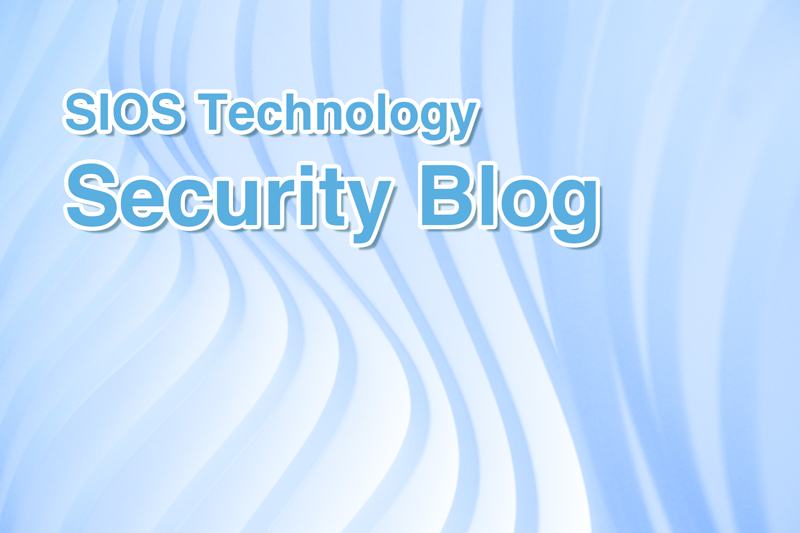こんにちは。SIOS OSSエバンジェリスト/セキュリティ担当の面 和毅です。
08/30/2022にLinux Kernelに複数の脆弱性(CVE-2022-0480 CVE-2022-0812 CVE-2022-0850 CVE-2022-0934 CVE-2022-1016 CVE-2022-1043 CVE-2022-1184 CVE-2022-1198 CVE-2022-1199 CVE-2022-1204 CVE-2022-2961)が公開されました。今回はこれらの脆弱性の概要と、各ディストリビューションの対応について纏めます。
[過去の関連リンク]
Linux Kernelの脆弱性(Important: CVE-2022-0400)
Linux Kernelの脆弱性(Moderate: CVE-2022-2959)
Linux Kernelの脆弱性(Moderate: CVE-2022-2873)
Linux Kernelの脆弱性(Dirty Cred:CVE-2021-4154, CVE-2022-2588, and more in future)
Linux Kernelの脆弱性(CVE-2022-36946 )
Linux Kernelに脆弱性(Moderate: CVE-2022-2380 )
Linux Kernelの脆弱性( CVE-2022-34918 )
Linux Kernelに脆弱性(Important: CVE-2022-32250 (CVE-2022-1966は重複のためMITREによりRejected) )
Priority
| CVE番号 | 影響するバージョン | 一次情報源 | Priority | CVSS Score / CVSS Vector |
|---|---|---|---|---|
| CVE-2022-0480 | Red Hat: 5.5 Moderate | Red Hat: CVSS:3.1/AV:L/AC:L/PR:L/UI:N/S:U/C:N/I:N/A:H | ||
| CVE-2022-0812 | Red Hat: 4.3 Moderate | Red Hat: CVSS:3.1/AV:N/AC:L/PR:L/UI:N/S:U/C:L/I:N/A:N | ||
| CVE-2022-0850 | Red Hat: 4.4 Moderate | Red Hat: CVSS:3.1/AV:L/AC:L/PR:L/UI:N/S:U/C:L/I:N/A:L | ||
| CVE-2022-1016 | http://blog.dbouman.nl/2022/04/02/How-The-Tables-Have-Turned-CVE-2022-1015-1016/ | Red Hat: 5.5 Moderate | Red Hat: CVSS:3.1/AV:L/AC:L/PR:L/UI:N/S:U/C:H/I:N/A:N | |
| CVE-2022-1043 | Red Hat: 7.8 Moderate | Red Hat: CVSS:3.1/AV:L/AC:L/PR:L/UI:N/S:U/C:H/I:H/A:H | ||
| CVE-2022-1184 | Red Hat: 5.5 Moderate | Red Hat: CVSS:3.1/AV:L/AC:L/PR:L/UI:N/S:U/C:N/I:N/A:H | ||
| CVE-2022-1198 | Red Hat: 5.1 Moderate | Red Hat: CVSS:3.1/AV:L/AC:H/PR:N/UI:N/S:U/C:N/I:N/A:H | ||
| CVE-2022-1199 | Red Hat: 5.1 Moderate | Red Hat: CVSS:3.1/AV:L/AC:H/PR:N/UI:N/S:U/C:N/I:N/A:H | ||
| CVE-2022-1204 | Red Hat: 5.1 Moderate | Red Hat: CVSS:3.1/AV:L/AC:H/PR:N/UI:N/S:U/C:N/I:N/A:H | ||
| CVE-2022-2961 | Red Hat: 6.5 Moderate | Red Hat: CVSS:3.1/AV:L/AC:H/PR:L/UI:N/S:U/C:H/I:L/A:H |
修正方法
各ディストリビューションの情報を確認してください。
CVE概要(詳細はCVEのサイトをご確認ください)
- https://cve.mitre.org/cgi-bin/cvename.cgi?name=CVE-2022-0480
- メモリ枯渇の可能性
- Linux Kernelのfs/locks.c中のfilelock_init()に問題が見つかりました。memcgがPOSIXファイルロックの数に限定されていないため、メモリ枯渇を引き起こす可能性があります。
- https://cve.mitre.org/cgi-bin/cvename.cgi?name=CVE-2022-0812
- 情報漏えいの可能性
- Linux Kernelのnet/sunrpc/xprtrdma/rpc_rdma.c中のNFS over RDMAfilelock_init()に問題が見つかりました。これにより一般ユーザ権限の攻撃者がKernelの情報を盗むことができる可能性があります。
- https://cve.mitre.org/cgi-bin/cvename.cgi?name=CVE-2022-0850
- 情報漏えいの可能性
- Linux Kernelに問題が見つかりました。ext4_extent_headerを通してユーザスペースに情報が漏洩する可能性があります。
- https://cve.mitre.org/cgi-bin/cvename.cgi?name=CVE-2022-1016
- use-after-freeの脆弱性
- Linux Kernelのfnet/netfilter/nf_tables_core.c中のnft_do_chainsに問題がありuse-after-freeの原因となっていました。これにより前提条件で’return’を正しく操作できればローカルのユーザがカーネルの情報を盗むことができる可能性があります。
- https://cve.mitre.org/cgi-bin/cvename.cgi?name=CVE-2022-1043
- システムクラッシュまたは権限昇格の可能性
- Linux Kernelのio_uring実装に問題が見つかりました。これによりローカルの攻撃者がシステムメモリを破損させ、システムをクラッシュさせたり権限を昇格したりできる可能性があります。
- https://cve.mitre.org/cgi-bin/cvename.cgi?name=CVE-2022-1184
- DoSの可能性
- Linux Kernelのfs/ext4/namei.c中のdx_insert_block()中にuse-after-freeの問題が見つかりました。これを利用してローカルの攻撃者はDoSを引き起こすことができる可能性があります。
- https://cve.mitre.org/cgi-bin/cvename.cgi?name=CVE-2022-1198
- システムクラッシュの可能性
- Linux Kernelのdrivers/net/hamradio/6pack.c中にuse-after-freeの問題が見つかりました。これを利用してローカルの攻撃者がシステムをクラッシュさせることができる可能性があります。
- https://cve.mitre.org/cgi-bin/cvename.cgi?name=CVE-2022-1199
- use-after-free / Nullポインタ被参照の可能性
- Linux Kernelに問題が見つかりました。ユーザ空間からアマチュアラジオのシミュレーションを行うと、use-after-free脆弱性とnull-ptr-deref脆弱性が発生する可能性があります。
- https://cve.mitre.org/cgi-bin/cvename.cgi?name=CVE-2022-1204
- システムクラッシュの可能性
- Linux KernelのアマチュアラジオのAX.25プロトコルの実装に問題が見つかりました。これによりローカルの攻撃者がシステムをクラッシュさせることができる可能性があります。
- https://cve.mitre.org/cgi-bin/cvename.cgi?name=CVE-2022-2961
- use-after-freeの問題
- Linux KernelのアマチュアラジオのPLP Rose機能に問題がありました。これによりローカルの攻撃者がシステムをクラッシュさせることができる可能性があります。
主なディストリビューションの対応方法
詳細は、各ディストリビューションの提供元にご確認ください
- Debian
- https://security-tracker.debian.org/tracker/CVE-2022-0480
- https://security-tracker.debian.org/tracker/CVE-2022-0812
- https://security-tracker.debian.org/tracker/CVE-2022-0850
- https://security-tracker.debian.org/tracker/CVE-2022-0934
- https://security-tracker.debian.org/tracker/CVE-2022-1016
- https://security-tracker.debian.org/tracker/CVE-2022-1043
- https://security-tracker.debian.org/tracker/CVE-2022-1184
- https://security-tracker.debian.org/tracker/CVE-2022-1198
- https://security-tracker.debian.org/tracker/CVE-2022-1199
- https://security-tracker.debian.org/tracker/CVE-2022-1204
- https://security-tracker.debian.org/tracker/CVE-2022-2961
- Red Hat Enterprise Linux/CentOS
- https://access.redhat.com/security/cve/CVE-2022-0480
- https://access.redhat.com/security/cve/CVE-2022-0812
- https://access.redhat.com/security/cve/CVE-2022-0850
- https://access.redhat.com/security/cve/CVE-2022-0934
- https://access.redhat.com/security/cve/CVE-2022-1016
- https://access.redhat.com/security/cve/CVE-2022-1043
- https://access.redhat.com/security/cve/CVE-2022-1184
- https://access.redhat.com/security/cve/CVE-2022-1198
- https://access.redhat.com/security/cve/CVE-2022-1199
- https://access.redhat.com/security/cve/CVE-2022-1204
- https://access.redhat.com/security/cve/CVE-2022-2961
- Ubuntu
- https://ubuntu.com/security/CVE-2022-0480
- https://ubuntu.com/security/CVE-2022-0812
- https://ubuntu.com/security/CVE-2022-0850
- https://ubuntu.com/security/CVE-2022-0934
- https://ubuntu.com/security/CVE-2022-1016
- https://ubuntu.com/security/CVE-2022-1043
- https://ubuntu.com/security/CVE-2022-1184
- https://ubuntu.com/security/CVE-2022-1198
- https://ubuntu.com/security/CVE-2022-1199
- https://ubuntu.com/security/CVE-2022-1204
- https://ubuntu.com/security/CVE-2022-2961
- SUSE/openSUSE
- https://www.suse.com/security/cve/CVE-2022-0480.html
- https://www.suse.com/security/cve/CVE-2022-0812.html
- https://www.suse.com/security/cve/CVE-2022-0850.html
- https://www.suse.com/security/cve/CVE-2022-0934.html
- https://www.suse.com/security/cve/CVE-2022-1016.html
- https://www.suse.com/security/cve/CVE-2022-1043.html
- https://www.suse.com/security/cve/CVE-2022-1184.html
- https://www.suse.com/security/cve/CVE-2022-1198.html
- https://www.suse.com/security/cve/CVE-2022-1199.html
- https://www.suse.com/security/cve/CVE-2022-1204.html
- https://www.suse.com/security/cve/CVE-2022-2961.html
対処方法
各ディストリビューションの案内に従い、アップデートを行ってください。全てのRed Hat製品でパッチが行き渡っているかを確認するには、Red Hat SatelliteやKatello、Spacewalk等を使うと管理が便利でしょう。
また、OSの再起動が発生しますので、pacemakerなどOSSのクラスタ製品やLifeKeeperなどの商用のクラスタリング製品を使うとサービス断の時間を最小限にすることが出来ます。
[参考]
日々のメモを更新しています。
セキュリティ関係ニュースを更新しています。個別で情報出せるようになる前の簡単な情報・リンクなんかも載せていきます。
CFP情報 1
CSS2022の論文投稿およびデモ展示・ポスター発表募集のご案内です。みなさまからのご投稿・ご発表をお待ちしております。
コンピュータセキュリティシンポジウム2022 (CSS2022)
■開催期間 2022年10月24日(月) ~ 2022年10月27日(木)
■会場 熊本城ホールとオンライン(ZOOM)のハイブリッド開催
■募集スケジュール
- 2022年08月12日(金) 論文発表申込締切(アブストラクト)
- 2022年08月23日(火) 17:00 デモ展示・ポスター発表申込締切
- 2022年08月23日(火) 17:00 最終原稿締切(カメラレディ)
主催 一般社団法人 情報処理学会 コンピュータセキュリティ研究会(CSEC)
共催 一般社団法人 情報処理学会 セキュリティ心理学とトラスト研究会(SPT)
合同開催
- マルウェア対策研究人材育成ワークショップ2022(MWS2022)
- プライバシーワークショップ2022(PWS2022)
- ユーザブルセキュリティワークショップ2022(UWS2022)
- OSSセキュリティ技術ワークショップ2022(OWS2022)
- ブロックチェーンセキュリティワークショップ2022(BWS2022)

